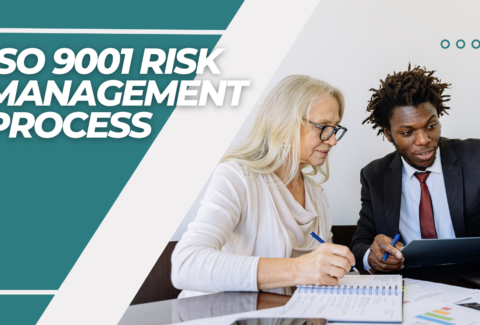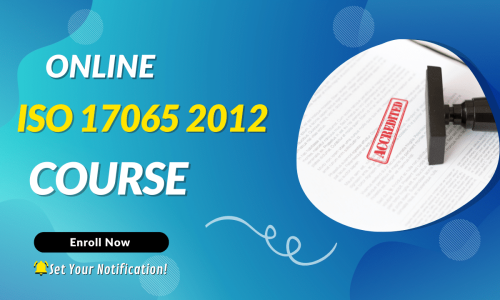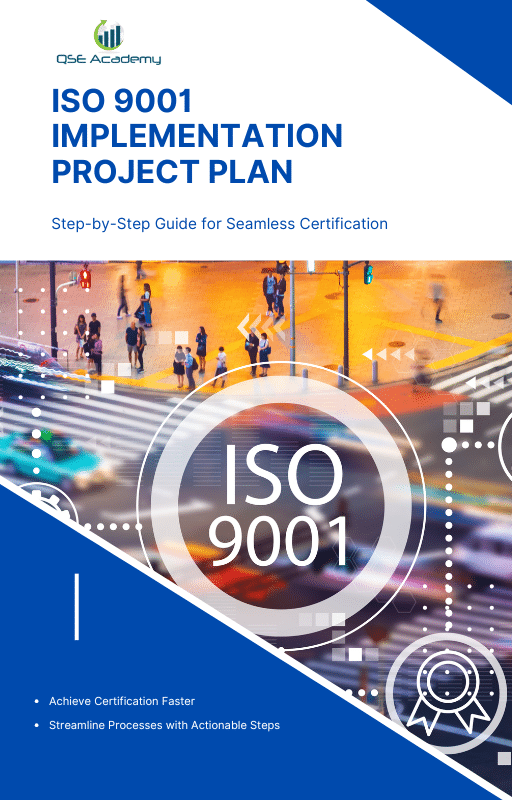Who gives iso 9001 certifications?
Who gives iso 9001 certifications?
Have you ever wondered who gives ISO 9001 certifications? It’s a question that often pops up when businesses start exploring ways to boost their credibility and improve their operations. ISO 9001, as you might already know, is the world’s most popular standard for quality management systems. But here’s the thing: while the ISO creates the standards, they don’t actually hand out the certifications. Surprising, right?
Instead, the certifications come from specialized organizations called certification bodies. These are independent third-party companies responsible for assessing whether a business meets all the requirements of ISO 9001. In other words, they’re like quality inspectors who make sure everything is up to scratch before awarding that all-important certificate.
In this article, we’ll dive into the ins and outs of who gives ISO 9001 certifications. We’ll explore how these certification bodies work, why accreditation matters, and what you should look for when choosing the right partner for your ISO journey. By the end, you’ll have a crystal-clear understanding of how the process works—and how to make the most of it for your business.
Let’s get started!
Understanding ISO 9001 Certification
To really understand who gives ISO 9001 certifications, it helps to first get a clear picture of what ISO 9001 certification is all about. At its core, ISO 9001 is an internationally recognized standard for quality management systems. Think of it as a framework that helps businesses of all sizes deliver consistent quality in their products or services. It’s like a blueprint for running your operations efficiently while keeping your customers happy.
So, why is ISO 9001 certification such a big deal? Well, having that certificate is like a golden stamp of approval for your business. It shows the world—whether it’s customers, partners, or even potential investors—that your company prioritizes quality and meets globally recognized standards. But here’s the catch: you can’t just say, “I follow ISO 9001.” You need someone to verify that your systems and processes actually meet the requirements of the standard. And that’s where who gives ISO 9001 certifications comes into play.
ISO itself, the organization that develops the standard, doesn’t actually issue certifications. Instead, independent certification bodies step in to do that job. These organizations are experts in evaluating businesses against the ISO 9001 requirements. They’ll perform audits, assess your processes, and, if everything checks out, award you that coveted certificate. In essence, certification bodies are the answer to the question: who gives ISO 9001 certifications?
Now that we’ve laid the foundation, let’s move on to explore the role of these certification bodies in more detail. Ready to dive deeper? Let’s go!
Who Gives ISO 9001 Certifications?
Now let’s tackle the big question: Who gives ISO 9001 certifications? You might think the ISO itself handles this, but that’s not how it works. Instead, ISO relies on independent organizations called certification bodies to issue these certifications. These bodies are like skilled referees—they assess your business to ensure you meet the requirements of ISO 9001 and then grant you the certificate if you pass.
So, what exactly do these certification bodies do? In simple terms, they’re responsible for conducting audits. An audit is like a deep dive into your business processes. Certification bodies will check whether your quality management system aligns with ISO 9001 standards. If everything is in order, congratulations—you’ll get your ISO 9001 certificate!
But wait—there’s more to understanding who gives ISO 9001 certifications. Not all certification bodies are created equal. To make sure you’re working with a trustworthy organization, you’ll want to check if they’re accredited. Accreditation is a fancy word that basically means a certification body has been approved by an official authority to do their job. For example, accreditation bodies like UKAS (United Kingdom Accreditation Service) or ANAB (ANSI National Accreditation Board) evaluate these certification bodies to ensure they meet strict standards.
Some well-known examples of certification bodies include TÜV Rheinland, SGS, Bureau Veritas, DNV, and BSI. These organizations operate worldwide and are highly respected for their expertise in certifying businesses. They are the go-to answer for who gives ISO 9001 certifications. Working with a reputable certification body not only helps you gain the certification but also boosts your business’s credibility globally.
In the next section, we’ll dive deeper into how these certification bodies operate and what the certification process looks like. Spoiler alert: it’s not as complicated as it sounds! Let’s keep going.
How Do Certification Bodies Operate?
Now that we know who gives ISO 9001 certifications, let’s take a closer look at how these certification bodies actually work. Spoiler: it’s not just about handing out certificates! These organizations follow a structured process to ensure that businesses meet every requirement of the ISO 9001 standard. Let’s break it down step by step.
The Certification Process
When a business decides to get ISO 9001 certified, the first step is reaching out to a certification body. Think of this as hiring a coach who will guide you through the process. Here’s what usually happens:
- Pre-certification Steps:
Many businesses start with a gap analysis, which is like a health check for your quality management system. The certification body (or sometimes a consultant) will identify what’s missing or needs improvement to meet ISO 9001 requirements. - Stage 1 Audit:
During this stage, the certification body reviews your documentation to ensure it aligns with ISO 9001 standards. It’s like checking your homework before the big test. If there are gaps, they’ll let you know so you can make the necessary fixes. - Stage 2 Audit:
This is the big moment! The auditors come in to evaluate how well your business has implemented the ISO 9001 standard. They’ll look at your processes, interview your team, and assess how your quality management system operates in practice. If everything meets the standard, you’re on your way to certification.
Maintaining Certification
Getting certified isn’t the end of the road. Certification bodies don’t just give you a certificate and disappear—they stick around to make sure you’re still meeting ISO 9001 standards. They’ll conduct surveillance audits (usually once a year) to ensure your quality management system stays on track.
Every three years, you’ll need to go through a recertification audit to renew your ISO 9001 certification. This ongoing process ensures your business continues to deliver consistent quality and stays committed to improvement.
Why Certification Bodies Matter
Understanding who gives ISO 9001 certifications isn’t just about knowing the names of certification bodies. It’s also about appreciating the role they play in ensuring businesses meet global standards. By conducting thorough audits, certification bodies uphold the credibility and value of ISO 9001 certification. They’re not just gatekeepers—they’re partners in your journey to improving quality.
In the next section, we’ll talk about how to choose the right certification body for your business and why that decision is so important. Ready to take the next step? Let’s dive in!
How to Choose the Right Certification Body
Now that we know who gives ISO 9001 certifications and how the process works, let’s talk about something just as important: how to choose the right certification body for your business. This decision matters more than you might think. After all, your certification is only as credible as the organization that issues it. But don’t worry—I’m here to walk you through it.
Key Factors to Consider
Choosing the right certification body can feel a bit overwhelming, especially with so many options out there. Here are a few key things to keep in mind when making your decision:
- Accreditation
Always check if the certification body is accredited by a recognized accreditation body. Accredited certification bodies have been evaluated and approved to ensure they meet strict standards. This guarantees that your ISO 9001 certification will be globally recognized and respected. Without accreditation, your certificate might not carry the same weight. - Reputation and Experience
Not all certification bodies are created equal. Look for one with a strong reputation and plenty of experience in your industry. Organizations like TÜV Rheinland, SGS, Bureau Veritas, DNV, and BSI are well-known examples of who gives ISO 9001 certifications. They’ve built a solid track record of helping businesses achieve certification, and their names alone can add credibility to your certificate. - Industry Expertise
Some certification bodies specialize in specific industries. If you’re in manufacturing, healthcare, or technology, it’s a good idea to find a certification body that understands the unique challenges of your field. Their expertise can make the process smoother and more relevant to your business needs. - Geographic Reach
If your business operates internationally, choose a certification body with a global presence. This ensures that your ISO 9001 certification will be recognized across borders and can support your growth in new markets.
Tips for Making the Right Choice
When you’re deciding who gives ISO 9001 certifications to trust with your business, do a little homework. Here are a few tips to help:
- Research Their Credentials: Visit their website to check for accreditation and industry affiliations.
- Ask for References: Talk to other businesses in your industry that have used their services. Their feedback can give you valuable insights.
- Compare Services and Costs: While cost shouldn’t be the only factor, it’s important to understand what you’re paying for and ensure it aligns with your budget.
Why Your Choice Matters
The certification body you choose will be your partner in achieving and maintaining ISO 9001 certification. They’ll guide you through audits, help you improve, and ensure your certification remains credible. Making the right choice not only simplifies the process but also ensures your hard-earned ISO 9001 certificate is respected and trusted by customers, partners, and stakeholders.
In the next section, we’ll explore why working with accredited certification bodies is essential and how they uphold the integrity of who gives ISO 9001 certifications. Let’s keep going!
Why It’s Essential to Work with Accredited Certification Bodies
When it comes to who gives ISO 9001 certifications, one key factor stands out: accreditation. Working with an accredited certification body isn’t just a good idea—it’s essential. But why does accreditation matter so much? Let’s break it down in a way that’s easy to understand.
Ensuring Credibility
Imagine getting a certificate from an organization that no one recognizes or trusts. That wouldn’t feel great, right? Accreditation ensures that the certification body you choose has been thoroughly vetted by an official authority, like UKAS (United Kingdom Accreditation Service) or ANAB (ANSI National Accreditation Board). These accreditation bodies make sure certification providers meet strict international standards.
By working with an accredited certification body, you can rest assured that your ISO 9001 certification will be credible and recognized worldwide. After all, what’s the point of going through the process if your customers or partners can’t trust your certificate?
Recognized Standards Across the Globe
One of the biggest benefits of ISO 9001 certification is that it’s internationally recognized. But for your certification to hold weight in different countries, it needs to come from an accredited source. This is especially important if your business operates globally or if you’re planning to expand into new markets. Accreditation ensures that who gives ISO 9001 certifications is trusted not just locally, but everywhere your business goes.
The Risks of Non-Accredited Certification Bodies
You might come across non-accredited certification bodies offering ISO 9001 certification at a lower cost. While this might seem like a tempting option, it’s a risky move. Certificates from non-accredited bodies may not be accepted by key stakeholders, like customers, regulatory agencies, or industry groups. Plus, you could face challenges during tenders, as many organizations only accept certifications from accredited bodies.
To put it simply, choosing a non-accredited certification body can lead to wasted time, money, and effort. Accreditation acts as a seal of approval that guarantees quality and trust.
Accreditation: A Mark of Trust
When deciding who gives ISO 9001 certifications for your business, think of accreditation as the backbone of the process. It ensures that the certification body operates with integrity, follows strict guidelines, and upholds the value of ISO 9001 certification. By working with an accredited body, you’re not just getting a certificate—you’re getting a globally recognized badge of trust.
In the final section, we’ll wrap things up and recap why choosing the right certification body is critical to your ISO 9001 journey. Let’s bring it all together!
Conclusion: Who Gives ISO 9001 Certifications?
By now, you should have a clear picture of who gives ISO 9001 certifications and why the choice of certification body matters so much. It’s not ISO itself handing out these certificates—it’s independent certification bodies that play this crucial role. These organizations are responsible for evaluating your business, ensuring it meets ISO 9001 requirements, and granting you the certification if you qualify.
But here’s the most important takeaway: not all certification bodies are created equal. Choosing an accredited certification body ensures your ISO 9001 certification will be credible, globally recognized, and truly valuable to your business. Whether it’s TÜV Rheinland, SGS, Bureau Veritas, or another well-known name, the right certification body will guide you through the process and help you maintain compliance for years to come.
Remember, working with an accredited body not only validates your commitment to quality but also protects your investment. Avoid the risks of non-accredited providers and focus on finding a partner with the reputation, expertise, and accreditation to support your goals.
So, the next time someone asks who gives ISO 9001 certifications, you’ll know exactly what to tell them—and why it’s so important to choose wisely. Ready to take the next step? Start your journey today with the confidence that you now have the knowledge to make the best decision for your business. You’ve got this!
Looking for More Resources on ISO 9001?
Looking for ISO 9001 Resources Tailored to Your Industry?
If this article helped clarify ISO 9001, take the next step with our industry-focused tools designed to simplify your certification journey:
📦 ISO 9001 Documentation Kits by Industry: Whether you’re in manufacturing, construction, consulting, or healthcare — we have complete, ready-to-use documentation tailored for your sector.
🎓 Online ISO 9001 Training: Learn how to implement ISO 9001 effectively with our easy-to-follow video lessons, real-world examples, and practical exercises.
📋 ISO 9001 Checklist: Download our step-by-step checklist to ensure your QMS meets all the 9001:2015 requirements from start to finish.
These resources are crafted to save you time, reduce stress, and help you achieve certification with confidence. Choose your industry and start now!

make ISO standards less intimidating and more approachable for everyone.
Whether it’s ISO 9001, ISO 22000, or the cosmetics-focused ISO 22716,
I’ve spent my career turning complex jargon into clear, actionable steps
that businesses can actually use. I’m not here to call myself an expert—I prefer “enthusiast” because I truly love what I do.
There’s something incredibly rewarding about helping people navigate food safety and quality management systems
in a way that feels simple, practical, and even enjoyable.
When I’m not writing about standards, you’ll probably find me playing Piano 🎹, connecting with people, or diving into my next big project💫.
- I’m an engineer specialized in the food and agricultural industry
- I have a Master’s in QHSE management and over 12 years of experience as a Quality Manager
- I’ve helped more than 15 companies implement ISO 9001, ISO 22000, ISO 22716, GMP, and other standards
- My clients include food producers, cosmetics manufacturers, laboratories, and service companies
- I believe quality systems should be simple, useful, and efficient
- Outside of work, I play piano and love learning something new every day
Let’s make ISO less about stress and more about success! 🙏






















